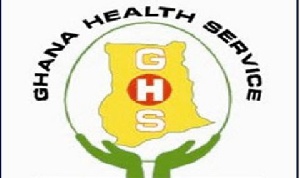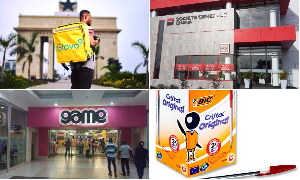Health News of Thursday, 25 April 2024
Source: GNA
GHS, UNICEF launch mobile app to address vaccine hesitancy
The Ghana Health Service (GHS) and UNICEF have launched a new mobile application, “Cranky Uncle Game,” in Accra to tackle misinformation and address vaccine hesitancy in Ghana.
The technology is a global app adapted to the Ghanaian situation to equip players with tools to learn, identify, and debunk tricks and tactics employed by conspiracy theorists on vaccination.
It is a user-friendly, exciting, and interactive game for everyone, made available in six local languages.
Dr. Patrick Kuma-Aboagye, Director General, GHS, said embracing innovation and technology in the promotion of health was necessary, hence the introduction of the technology to help address issues of vaccine hesitancy, which had been a worrying phenomenon in the health sector.
He said the “Cranky Uncle” game was specifically designed to debunk the myths and misinformation about vaccination, particularly the COVID-19 vaccines, which had led to the refusal of accepting the vaccines among the Ghanaian population.
The Director General said the digital technology also provided a platform to engage and educate the public about the importance of vaccines and the dangers of misinformation, adding that, “Through interactive digital games, social media campaigns and online resources, we can reach individuals of all ages and backgrounds, empowering them with the knowledge they need to make informed decisions about their health.”
He said: “In recent years, we have witnessed the alarming spread of misinformation surrounding vaccines, threatening not only individual health but also the fabric of our society, yet in the face of these challenges, we refuse to be complacent. We recognise that digital technology holds the key to unlocking a brighter, more informed future.”
The Director General urged the public to embrace the technology and ensure the safety of the entire population.
Dr. Naziru Tanko Mohammed, Deputy Programme Manager, Expanded Programme on Immunization (EPI), stated that though Ghana was doing well in immunization, it was still struggling to achieve the 95 percent target.
He said though vaccines had reduced infant and neonatal mortality, some mothers discontinued the routine immunization for their children, which later affected their growth and well-being.
Dr. Mohammed explained that even with COVID-19, people who had taken the full dosage needed boosters to increase their immunity and urged mothers to avail their children of complete routine vaccination services.
He stressed that the Cranky Uncle game had been introduced at the right time to help individuals identify the tricks in misinformation and enable them to distinguish between facts and myths using conspiracy theories.
Ms Sonya Sagan, head of the Social Behavioural Change (SBC) Unit at UNICEF Ghana, said although many people believed that COVID-19 had ended, the virus continued to circulate and had the potential to cause a lot of harm, particularly to the vulnerable population.
Ms. Sagan said that despite the many efforts, misinformation and disinformation continued to be a challenge in Ghana and had the potential to erode some of the gains made, hence the need to improve vaccine literacy in Ghana through the Cranky Uncle game.
"This is an approach to building public resilience against misinformation," she added.











